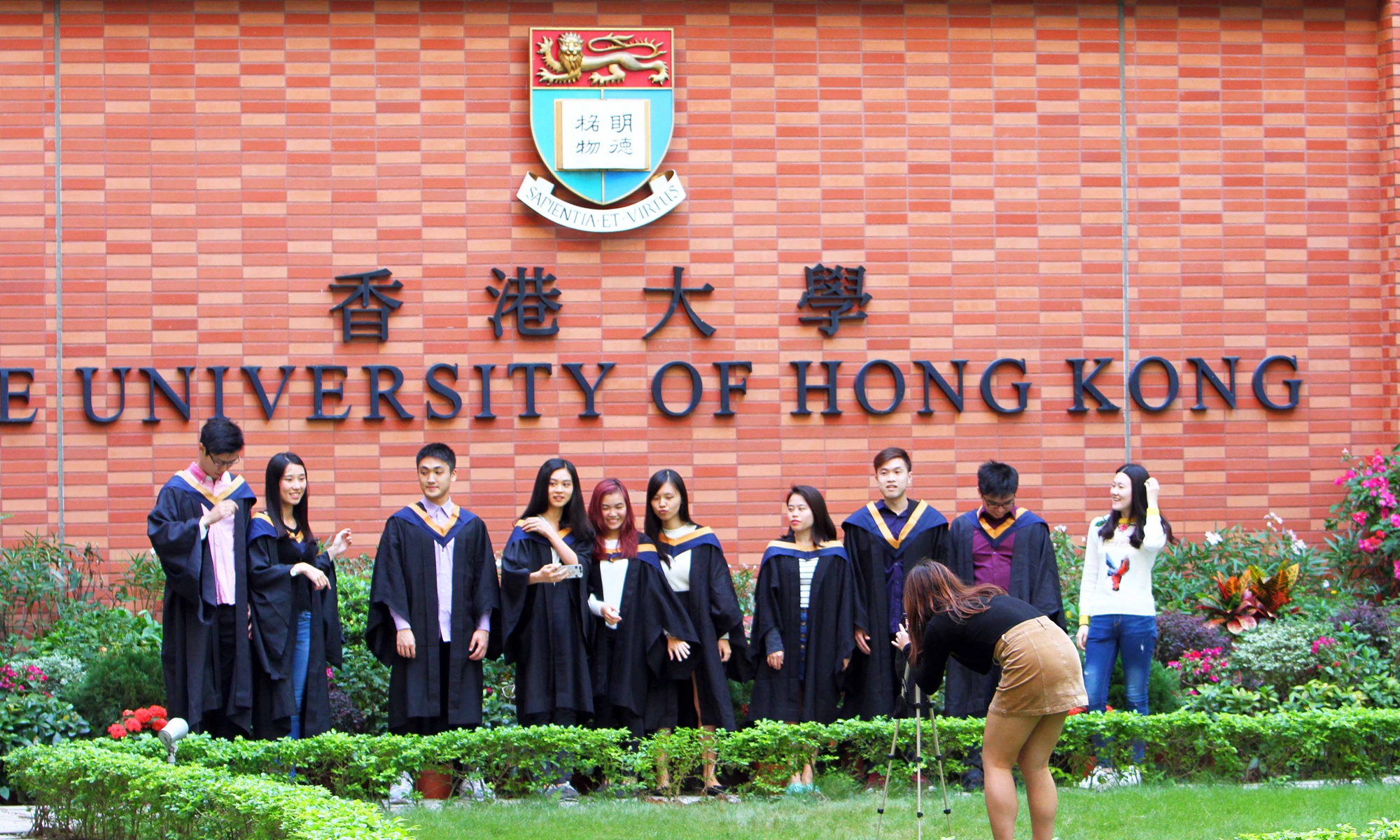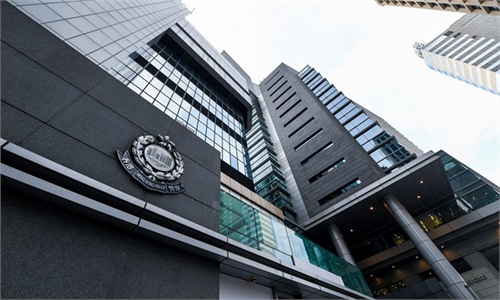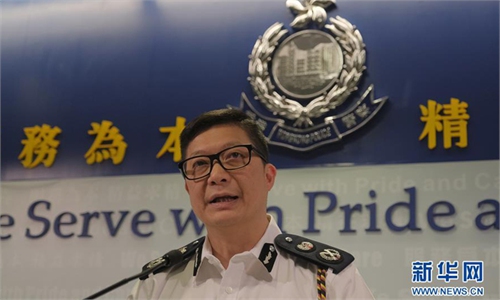Update: HKU student union apologizes after mourning of 'lone-wolf' attacker received waves of criticism

HKU Photo: cnsphoto
After receiving weaves of criticism, the University of Hong Kong (HKU) student union council apologized on Friday for "inappropriate content in a motion of condolences" passed to the offender who carried out a vicious attack on a police officer.
"The Union, as a servant to HKU students, does not promote unlawful behavior. The Union acknowledges the severity of the event, and would remain cautious about its responsibility to students, to the University and to society," according to a picture of the apology letter posted by Hong Kong media.
The student union also said in the letter that the "Union Council shall revoke the motion. The Union Executive Committee share resign immediately." The apology was made in a conference held around 1:00 am on Friday morning.
The student union council received waves of criticism after it expressed condolences to the offender who carried out a vicious attack on a police officer before killing himself on July 1, and even said it was "grateful for his sacrifice." This incident, along with the recent national security case involving students, exposed hidden dangers in Hong Kong's education sector, experts noted.
Just hours after the student union council's open expression of mourning of the attacker, the university authorities strongly condemned the action, which glorified violent attacks in the name of the student union council.
"Students' use of 'sacrifice' to describe the alleged terrorist attack on the police officer will convey the wrong message to the community," said a spokesperson. "The university condemns all acts of violence and opposes any speech and behavior that promotes and rationalizes violence."
On Thursday, the Hong Kong Security Bureau strongly criticized the student union council's glorification of the attempted murder of a police officer, noting that the act supports and promotes terrorism, which is inhumane and makes the union an enemy of the public.
In a statement sent to the Global Times on Thursday, the Police Force Council Staff Associations said they feel extremely disappointed and angry toward the public mourning, and they "cannot understand why the council would send condolences to an attacker."
On Wednesday evening, the HKU student union council sent public condolences to a police officer's attacker after a council meeting. Before the meeting began, the council even observed a minute of silence for the attacker.
The attack took place on July 1 when the attacker surnamed Leung stabbed a police officer in the street and later killed himself in a lone-wolf style terrorist attack.
Government officials and the police have repeatedly warned that mourning for suspects involved in terrorist attacks is a glorification of terrorism and may violate the national security law.
Neglecting such warnings, some citizens went to the place where the incident took place to mourn the deceased attacker.
The act quickly drew criticism among netizens, some of whom criticized the so-called university students for being "unscrupulous." Secretary for Education Kevin Yeung criticized the HKU student union for mourning the attacker, saying that such behavior reverses right and wrong.
To even wider outrage, Johannes Chan, a HKU law professor, publicly defended the act. Chan said that people could simply be mourning out of sympathy for the deceased, or to show their discontent with the government.
In response to Chan's remarks, Hong Kong Security Secretary Chris Tang said he hoped that the scholar concerned could sleep at night, being as Hong Kong may be "painted in blood" because of him, local media reported.
In a separate case related to national security, of the nine suspects arrested under the national security law for Hong Kong for attempting to make bombs and planning a series of attacks, six were secondary school students and one was a staff member of Hong Kong Baptist University.
In response to this incident, Yeung pointed out that some people are suspected of abetting students to engage in terrorist activities, pushing young people with little life experience into the abyss of criminality.
"We must strongly condemn criminals and troublemakers who poison the minds of young people, and remind educators of the importance of teaching students about the law," Yeung said.
"We must prevent students from being poisoned by any seemingly noble and distorted ideas, and from participating in illegal and violent acts," he said.
The two incidents reflect a long legacy of problems in Hong Kong's education system that desperately calls for a thorough detoxification, experts noted.
The incidents have sounded an alarm to the Hong Kong education sector, Tang Fei, principal at Hong Kong's Heung To Secondary School (Tseung Kwan O), told the Global Times on Thursday.
"For over 20 years, the education sector in Hong Kong has been deeply affected and poisoned by extremist thinking. Although the national security law has brought some improvements, it will not be fixed overnight," Tang said.
Tang pointed out that HKU must impose severe punishment and re-education on the students who were involved in the incident, to make them deeply aware of the nature of the incident. If necessary, extremist student organizations can be banned according to the university's regulations.
For some of the isolated cases of extremism now occurring in Hong Kong, Tang said that in addition to harsh and swift law enforcement, the education sector needs to take responsibility and provide targeted educational follow-up.
"How were these young people brainwashed by extremist ideology and turned from law-abiding citizens to terrorists?" Tang asked.
"The Education Bureau, the Security Department and the Social Welfare Department can join forces and set up teams to probe and release these criminals, and to study how their thinking changed, so as to map out the psychology of Hong Kong's criminals. This can also be used to guide society and the schools about national security education," Tang said.
Experts also reassured Hong Kong citizens that lone-wolf terrorist attacks are unlikely to become common in the city, even if external incitement does not cease.
Tang said that two factors indicate that such a thing is unlikely: Hong Kong's technical superiority over the terrorists, and a society where it is hard for residents to develop extremist ideas.
"Hong Kong is an entertainment- and consumption-oriented city that has been peaceful for a long time. There is no atmosphere of violence and resentment in its society, so one or two cases of such [lone-wolf attacks] could happen sometimes, but they would not 'spread'," Tang noted.


